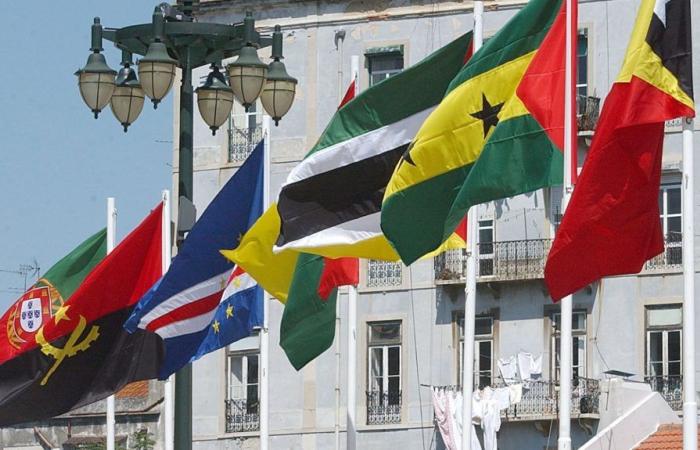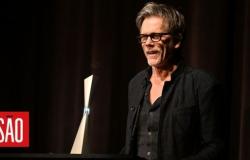Marcelo Rebelo de Sousa received at the Belém Cultural Center the presidents of the PALOP, Angola, Mozambique, Cape Verde, São Tomé and Príncipe, Guinea-Bissau, and also the president of Timor-Leste, for a ceremony commemorating the 50th anniversary of the 25th Of april.
Marcelo Rebelo de Sousa asked that the meeting held this Thursday at the Centro Cultural de Belém (CCB), with the presidents of the PALOP and also that of East Timor, to mark the 50th anniversary of 25 April, “be to look at the future” .
“Today, half a century after the 25th of April, I thank on behalf of Portugal the presidents João Lourenço (Angola), José Maria Neves (Cape Verde), Umaro Sissoco Embaló (Guinea-Bissau), Carlos Vila Nova (São Tomé and Príncipe) and José Ramos Horta (Timor) the honor of your fraternal, supportive and rewarding presence at this future meeting”. And he stressed: “Yes, this meeting is in the future”.
And he added: “From the colonial past, we all keep the memories and lessons that will guide us in the future. From the free past of the last 50 years, we draw inspiration to go further in affirming the strength of our future in language, culture, science, the rule of law, society, economy, peace diplomacy, sustainable development , the fight against poverty, climate action, respect for international law, human rights, multilateralism, universalism”.
Marcelo Rebelo de Sousa, a very brief speech, ended with “cheers” to all the countries that were colonies of Portugal. “Via the 25th of April, long live our homelands and brotherly peoples”, he said.
Two days after defending restitution and compensation to former Portuguese colonies at a dinner with foreign journalists – which earned him harsh criticism from Chega, the Liberal Initiative and the CDS – the President of the Republic completely ignored the matter before his counterparts from Angola, Mozambique , Cape Verde, Guinea-Bissau, São Tomé and Príncipe, and Timor-Leste.
Even after a Brazilian minister spoke about the subject yesterday, none of the African Presidents raised the issue of compensation for slavery or the restitution of works of art.
João Lourenço
Before Marcelo, the presidents of the invited countries spoke, with emphasis on the president of Angola, João Lourenço, who spoke first, highlighting: “The April revolution inaugurated a new phase in the history of the Portuguese nation, which it managed to establish in the years that a creative, vibrant and inclusive democracy followed, capable of maintaining fraternal relations with its former colonies based on the sharing of a common linguistic, historical and cultural heritage”.
João Lourenço ended with an invitation to the CPLP heads of state to travel to Angola next year for the celebrations of the country’s 50th anniversary.
José Maria Neves
This was followed by the intervention of José Maria Neves, president of Cape Verde, highlighting “the impact of April 25th went beyond the borders of Portugal”.
“It is time to think now about our dreams for the next 50 years”, asked the African head of state, having stressed that at “the dawn of the 21st century there is a feeling that democracy is being eaten away, with strong threats”.
José Maria Neves also considered that globalization has contributed to the “increase” of inequalities and warned of the global political system where “consensus is increasingly difficult”.
The African leader also accused the “manifest inability of governments to respond to the demands of civil society” and that voters are “increasingly skeptical” about the health of their democracies.
José Maria Neves referred to the new “denial theses and hate speech” that have more influence “where institutions are weaker”, which cause “notorious disenchantment and degeneration of traditional parties”.
He ended by warning that “we must think about how to protect democracy”.
Umaro Sissoco Embaló
The president of Guinea Bissau Umaro Sissoco Embaló remembered the country’s historic leader, Amílcar Cabral, murdered in 1973.
In the revolution “nothing was easy”, said the Guinean head of state.
Sissoco Embaló recalled that 50 years ago, when the 25th of April took place, the “Guinean people in struggle – led by the African Party for the Independence of Guinea and Cape Verde (PAIGC) of Amílcar Cabral – had already unilaterally proclaimed their own independence national, its own State” and this “relevant historical event” on September 24, 1973, was recognized “by a large majority” of UN members.
“The evocation of the Portuguese Revolution of the 25th of April immediately calls for a joint reflection on the national liberation struggles of our peoples”, said Embaló, highlighting the occurrence of “two historical processes that intersected”.
These two processes, he said, “had the same aspiration in common”, freedom and national liberation, so it was “not surprising that a strategic convergence – between the fighters against the Empire and the fighters against the dictatorship – began to gain, little little by little, greater density, greater strength”.
Filipe Nyusi
President of Mozambique, Filipe Nyusi spoke next and addressed a sensitive topic in relations with Portugal. He described massacres like the one in Wiriyamu as “inexcusable”.
Nyusi was referring to the attack on the civilian population of Tête province, allegedly carried out by Portuguese soldiers in December 1972.
The African leader highlighted that “these are acts carried out during the war and that were never attributed to the Portuguese people”, but that they are “inexcusable”.
Nyusi asked that historical facts be faced with “honesty” and without “revisionism”, appealing to “never forget the contribution” of the African people on April 25th.
He also left the challenge that in schools and in the Lusophone space “the truth be taught”.
The leader of Mozambique also highlighted that the presence of the PALOP heads of state is a “tribute” to the April captains who put an end to a regime that “subjugated our people”, concluding that he appreciates “the leaders of the new Portuguese generation”.
It should be noted that the sensitive terrorism situation in the province of Cabo Delgado in northern Mozambique was absent from the African head of state’s speech.
Carlos Vilanova
Carlos Vilanova, from São Tomé and Príncipe, remembered the song:
“The scent of freedom was intense through music, Zeca Afonso and other performers here and abroad. It was Portugal that placed itself on the right side of history”, stated the São Tomé president at the ceremony held by Marcelo Presidente de Sousa with his PALOP counterparts, at the CCB.
José Ramos-Horta
The President of the Republic of Timor-Leste, José Ramos-Horta, considered that Portugal knew how to recognize the colonial defeat and that reconciliation with the victorious countries happened quickly, immediately and naturally.
“The Portuguese knew how to react to changes without hatred or revenge, without shootings, without civil war, they accepted independence and fought with us for distant Timor”, said Ramos-Horta during his intervention at the ceremony commemorating the 50th anniversary of the 25th of April, which brought together all the presidents of Portuguese-speaking African countries in Lisbon.
In his intervention, Ramos-Horta made the distinction between Portugal before the revolution, “asphyxiated and isolated”, and the country that followed, exclaiming: “How much it has changed for the better, for much better, in all aspects!”.






